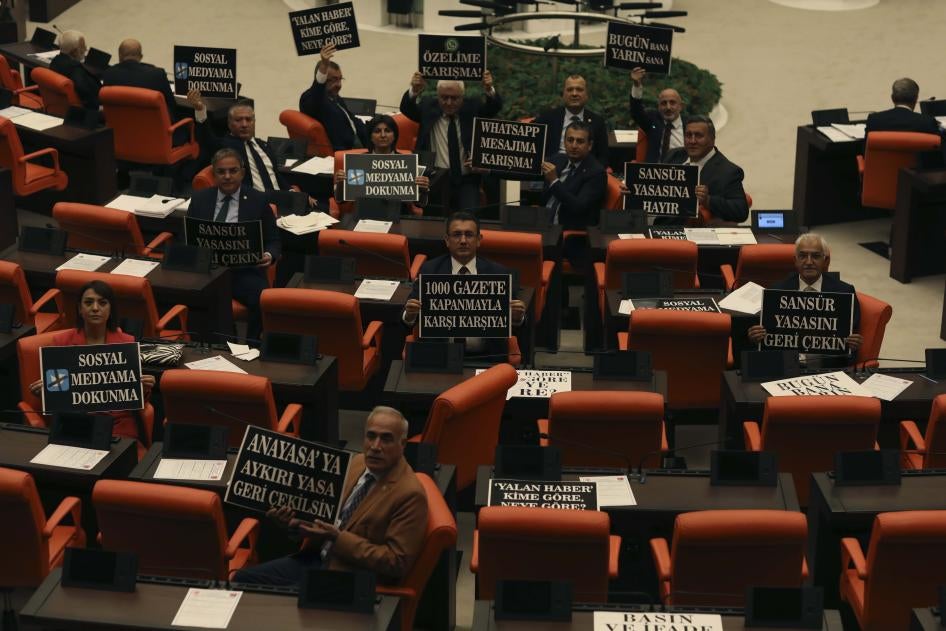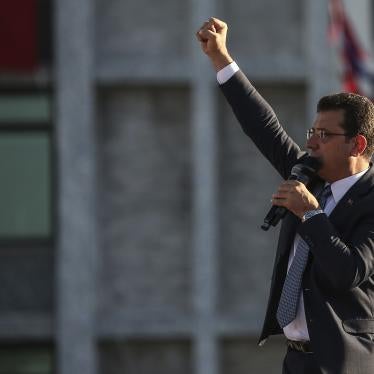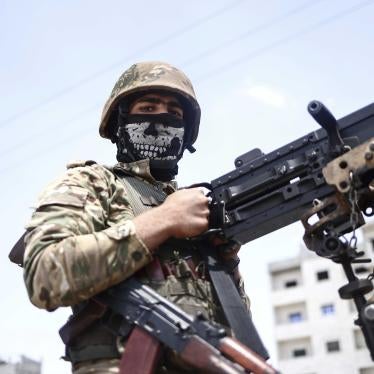(Istanbul) - Turkey’s government has increased its censorship powers and targeted perceived critics and opponents with bogus criminal proceedings and prison sentences in advance of 2023 presidential and parliamentary elections, Human Rights Watch said today in its World Report 2023.
On December 14, 2022, an Istanbul court imposed a prison sentence on the city’s mayor, Ekrem İmamoğlu, an Erdogan government opponent, and banned him from holding elected office on the basis of a comment about the Istanbul mayoral election he made to the media. If his conviction and sentence are upheld on appeal, Imamoğlu will be removed as mayor and be prevented from running for any other political office. The Erdogan government has equipped itself with far-reaching means to censor social media and criminalize content it deems “disinformation.”
“The Erdogan government has expedited its retreat from human rights and the rule of law by adding new online censorship and disinformation laws to muzzle the media and suppress peaceful dissent,” said Hugh Williamson, Europe and Central Asia director at Human Rights Watch. “The government has carried out highly abusive maneuvers against the political opposition, blanket bans on public protest, and the jailing and conviction of human rights defenders and perceived critics by courts operating under political orders.”
In the 712-page World Report 2023, its 33rd edition, Human Rights Watch reviews human rights practices in close to 100 countries. In her introductory essay, acting Executive Director Tirana Hassan says that in a world in which power has shifted, it is no longer possible to rely on a small group of mostly Global North governments to defend human rights. The world’s mobilization around Russia’s war in Ukraine reminds us of the extraordinary potential when governments realize their human rights obligations on a global scale. The responsibility is on individual countries, big and small, to apply a human rights framework to their policies, and then work together to protect and promote human rights.
The government increased its hateful government discourse against the lesbian, gay, bisexual and transgender (LGBT) community and failed to protect women from domestic violence and uphold women’s rights and gender equality. Turkey flouts binding rulings by the European Court of Human Rights, most notably the demand for the release of human rights defender Osman Kavala. This led the Council of Europe in February to vote for the exceptional measure of triggering infringement proceedings against Turkey, a form of sanction process used for the second time in the council’s history.
The shocking conviction in April 2022 of Kavala and codefendants, who are all in prison, and the continuing detention of the politicians Selahattin Demirtaş, Figen Yüksekdağ, and others, demonstrates the intensity with which this government has embraced a role as a leading human rights violator in the Council of Europe, Human Rights Watch said. All should be immediately released in accordance with the binding rulings of the European Court of Human Rights.
Turkey hosts the highest number of refugees in the world, with an estimated 3.6 million Syrian refugees in the country, in addition to asylum seekers from other countries. But in 2022, Turkey increased deportation flights of Afghans to Afghanistan despite the United Nations High Commissioner for Refugees’ call on all governments not to forcibly return Afghans. Turkish authorities also summarily pushed back hundreds of thousands of people attempting to enter Turkey via its eastern border with Iran, and deported hundreds of Syrians to Syria by forcing them to sign voluntary return forms.









